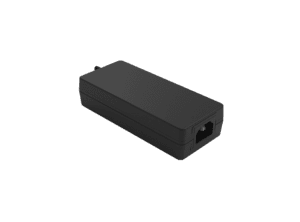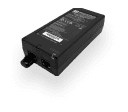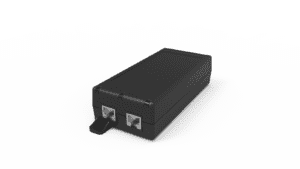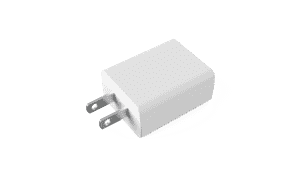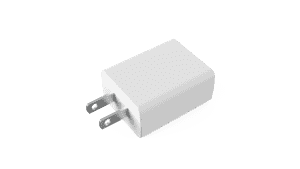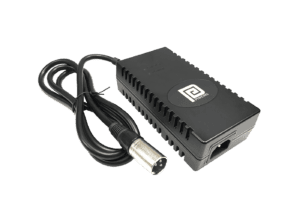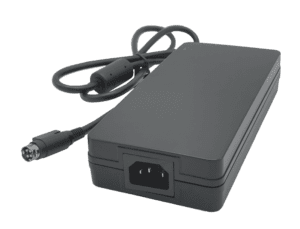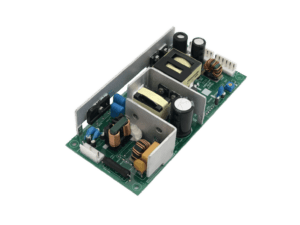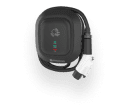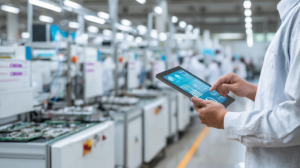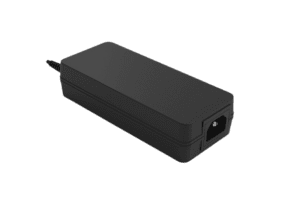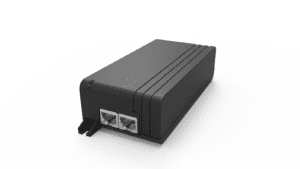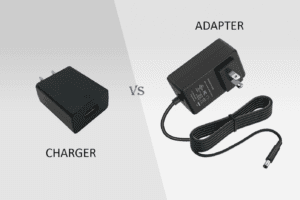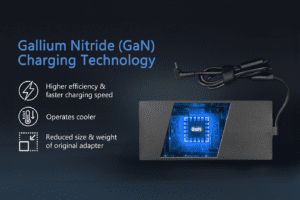BLOG
EV Charging Systems: How to Manufacture UL‑Compliant Level 2 EV Chargers for Commercial Fleets
Table of contents

Why Are Level 2 EV Chargers Ideal for Commercial Fleets?
As businesses transition to electric vehicle fleets, they face a critical infrastructure question: how to charge multiple vehicles efficiently, safely, and without disruption to operations. Level 2 EV chargers have emerged as the most practical solution for commercial fleets due to their balance of charging speed, installation cost, and compatibility with most EVs on the market.
Delivering power at 208V to 240V and offering up to 19.2 kW output, Level 2 chargers provide a full vehicle charge in 4–8 hours—ideal for overnight fleet use. Whether you’re electrifying delivery vans, service vehicles, or employee commuter fleets, Level 2 chargers offer scalable performance without the infrastructure requirements of DC fast charging.
Top Features
- Power Output up to 19.2 kW: Provides 4–6 times the speed of Level 1 charging, ideal for fleet rotation schedules.
- Smart Charging Compatibility: Supports load balancing, scheduling, and OCPP 1.6 or 2.0 integration.
- Flexible Installation: Wall-mount or pedestal options suitable for garages, depots, or outdoor environments.
Top Benefits
- Reduces vehicle downtime during charging cycles
- Enables cost-effective scalability for growing fleets
- Offers broad EV model compatibility for mixed vehicle types
Best Practices
- Evaluate daily vehicle mileage and turn-around time to determine charging speed requirements
- Integrate chargers with fleet management platforms for scheduling and diagnostics
- Plan for future expansion with modular charger configurations
For commercial fleets, Level 2 chargers strike the right balance between power, cost, and operational flexibility.
What Is UL Certification and Why Is It Essential for EV Charger Manufacturing?
UL (Underwriters Laboratories) certification is one of the most important safety and compliance standards in North America for EV charging equipment. It verifies that a charger meets rigorous criteria for electrical safety, fire resistance, and user protection—requirements that are critical in commercial and public-use environments.
For Level 2 EV chargers, the most relevant certifications include:
- UL 2594: Covers EVSE (Electric Vehicle Supply Equipment) for general safety
- UL 2231-1 & 2231-2: Addresses personnel protection and fault detection in conductive charging systems
Without these certifications, chargers cannot be installed in many jurisdictions and risk liability in the event of malfunctions.
Top Features
- Integrated GFCI and Ground Fault Protection: Prevents electric shock in the event of fault conditions
- Auto Restart and Power Loss Recovery: Maintains charging stability after outages
- Labeling and Traceability: Ensures inspection readiness and serial tracking for recalls or service
Top Benefits
- Faster approval by local electrical inspectors
- Reduces legal and warranty risks for commercial customers
- Enhances brand credibility and end-user trust
Best Practices
- Verify UL status on the manufacturer’s listing or database
- Request third-party lab test reports and sample certifications
- Design with UL requirements in mind to avoid redesign later
UL compliance isn’t just about safety—it’s a prerequisite for commercial EV infrastructure success.
How to Design Level 2 Chargers for Fleet-Ready Durability and Uptime
Fleet operations demand hardware that can stand up to high usage, variable weather, and minimal downtime. Level 2 EV chargers for commercial use must be engineered not just for performance—but for durability, serviceability, and network uptime.
That means more than a waterproof casing. Components need to handle repeated connect/disconnect cycles, operate across wide temperature ranges, and allow for remote monitoring or firmware updates to minimize service calls.
Top Features
- NEMA 3R or 4 Enclosures: Withstands rain, snow, dust, and extreme temps for outdoor installations
- Industrial-Grade Cabling and Connectors: Designed for thousands of charge cycles without degradation
- Remote Monitoring and OTA Updates: Ensures real-time diagnostics, repair alerts, and feature upgrades
Top Benefits
- Minimizes downtime and service calls
- Increases ROI for fleet operators by extending equipment life
- Reduces TCO through preventive maintenance alerts
Best Practices
- Select a charger design tested for 10,000+ mating cycles
- Use cable management systems to prevent wear and tangling
- Choose a provider that offers a remote management dashboard and API integration
Durability isn’t just a feature—it’s a must-have for commercial fleet electrification at scale.
CLIENT'S QUOTE
"Phihong’s PoE solutions have made a huge difference for us! Our network runs more efficiently, and we’ve seen real cost savings. We couldn’t be happier!"
What Are the Key Manufacturing Challenges for UL-Compliant EV Chargers?
Designing a reliable Level 2 charger is one thing—manufacturing it at scale while maintaining UL compliance is another. Manufacturers must balance component sourcing, thermal management, form factor constraints, and compliance documentation—all while minimizing cost and maximizing production efficiency.
A single misstep in design-for-manufacturability can result in failed safety tests or costly rework. This is especially critical in commercial deployments where safety, uptime, and rapid rollout timelines matter.
Top Features
- Pre-Certified Modules and Components: Using UL-listed internal parts speeds up system certification
- Thermal Efficiency Across Assembly: Avoids overheating even in high-use fleet environments
- Optimized Wiring and PCB Design: Streamlined internal layouts for faster, safer manufacturing
Top Benefits
- Faster product release with fewer iterations
- Lower production costs through smarter component selection
- Fewer compliance-related delays during scaling
Best Practices
- Design with standard UL-certified components where possible
- Test complete units under worst-case load and temperature scenarios
- Document every component’s traceability to streamline UL audits
Manufacturing for UL compliance is not an afterthought—it should be integrated into the earliest design stages and tightly managed throughout production.
How to Future-Proof Level 2 Charging Systems for Evolving Fleet Needs
Commercial fleets are dynamic—new vehicle types, route changes, or load demands can shift overnight. That’s why OEMs need to design and manufacture future-ready Level 2 charging systems that can adapt with minimal infrastructure changes.
Whether it’s modularity for additional ports, OCPP compatibility for smart fleet energy management, or field-upgradable firmware, your chargers need to evolve as your fleet does.
Top Features
- Smart Charging Platform Integration: Compatible with fleet load-balancing software and real-time dashboards
- OCPP 1.6 or 2.0 Support: Ensures interoperability with fleet management systems
- Upgradable Firmware and Open API Access: Adds new functionality without swapping hardware
Top Benefits
- Extends product lifespan without major reinvestment
- Supports rapid adoption of new vehicle classes and charge profiles
- Reduces IT integration headaches during expansion
Best Practices
- Choose a vendor that supports remote diagnostics and software updates
- Plan for additional breaker capacity or wiring during first installation
- Evaluate your fleet’s long-term electrification roadmap to guide current purchases
Designing for the future gives you flexibility—and avoids stranded infrastructure costs down the road.
How Phihong USA Helps OEMs Manufacture UL-Compliant Level 2 EV Chargers
Phihong USA, through its EV charging subsidiary Zerova Technologies, is a trusted partner for OEMs seeking to develop UL-compliant, fleet-ready Level 2 charging solutions. With decades of power conversion experience and in-house EVSE design teams, Phihong brings manufacturing excellence and regulatory fluency to the table.
We offer full lifecycle support—from concept development to UL certification, tooling, and global production. Whether you’re launching a new charger line or scaling for enterprise deployments, Phihong ensures your products are safe, scalable, and future-ready.
Here’s what we deliver:
- UL 2594 and UL 2231-compliant Level 2 AC charging systems
- Commercial-grade enclosures and cable designs tested for fleet use
- Smart charging features with OCPP support and API integration
- Manufacturing capacity to scale from prototype to high-volume rollouts
With Phihong and Zerova, OEMs gain more than a supplier—they gain a strategic partner ready to support North America’s growing EV infrastructure needs.
Let’s power your fleet forward.
Contact us for a free consultation at www.phihong.com or email usasales@phihongusa.com to learn more.

Contact Our Team Today!
Our dedicated sales team and international partners are prepared to support you with your latest projects and initiatives globally.
Explore More with Phihong USA
As we conclude our exploration of PoE technology, it’s evident how these innovations are streamlining power and data integration across various industries. Phihong USA stands at the forefront of this technological advancement, offering a diverse range of power solutions designed to meet the evolving needs of modern industries.
Phihong USA’s extensive product lineup includes:
- Power over Ethernet (PoE) Solutions: Delivering reliable power and data transmission over a single cable, ideal for simplifying network installations and reducing costs.
- AC/DC Adapters and Power Supplies: From compact adapters to industrial-grade power supplies, Phihong provides solutions that ensure efficiency and reliability in various applications.
- Battery Chargers: Customizable chargers for lithium-ion and lead-acid batteries, supporting a wide range of power requirements for mobility and industrial applications.
- Medical Power Supplies: Specialized power solutions designed to meet the stringent requirements of the healthcare industry, ensuring safety and reliability.
Phihong USA is committed to innovation and excellence, continually developing products that meet the highest standards of performance and reliability. Their global reach and dedication to customer support make them a trusted partner in powering the future.
Here are some useful links to explore Phihong USA’s offerings further and bring in new potential clients:
Visit Phihong USA to discover how their advanced power solutions can support your business needs. Whether you’re looking to upgrade your network, or find reliable power supplies, Phihong USA has you covered.
By choosing Phihong USA, you’re partnering with a leader in power technology, ensuring your operations run smoothly and efficiently with top-tier power solutions. Contact Us today!
FAQ
What makes a Level 2 EV charger suitable for commercial fleet use?
A Level 2 EV charger is considered ideal for commercial fleets because it provides a practical balance between charging speed, installation cost, and infrastructure demands. With a power output of 208–240V and up to 19.2 kW, it can charge most EVs within 4 to 8 hours—making it perfect for overnight fleet rotations or daytime top-offs.
In a fleet context, the right Level 2 charger must also be:
- Durable and weather-resistant for continuous outdoor use
- Smart-enabled to integrate with fleet management platforms
- Scalable to support expansion as the number of vehicles grows
Chargers should also be tested for thousands of connect/disconnect cycles and designed for minimal maintenance. Smart features such as load balancing, scheduling, and remote diagnostics further enhance operational efficiency and reduce total cost of ownership.
What UL certifications are required for Level 2 EV chargers?
The key UL certifications required for Level 2 EV chargers in North America include:
- UL 2594: This is the primary standard for EV supply equipment and ensures overall electrical safety.
- UL 2231-1 and UL 2231-2: These standards focus on personnel protection and grounding safety during EV charging.
- UL 991 and UL 1998 (in some cases): Related to fault tolerance in electronic controls, often required in smart or networked chargers.
Manufacturers must undergo testing by a certified lab and maintain detailed documentation of components and design traceability. UL certification not only ensures product safety—it is a legal requirement for installation in many jurisdictions, especially in public or commercial settings.
How can OEMs reduce time-to-market when manufacturing UL-compliant chargers?
Reducing time-to-market starts with integrating compliance into the design process from day one. OEMs can streamline development and avoid delays by:
- Using pre-certified components (connectors, enclosures, PCBs)
- Partnering with manufacturers experienced in UL compliance
- Planning early for documentation, traceability, and audit readiness
Working with a supplier like Phihong or Zerova also gives OEMs access to engineering teams familiar with UL’s technical requirements. This reduces the need for costly design iterations, ensures faster lab approvals, and accelerates mass production timelines.
What are the most common challenges in commercial EV charger deployment?
Some of the most frequent challenges include:
- Thermal management issues in outdoor environments
- Regulatory delays due to insufficient certification or incomplete paperwork
- Network integration errors between chargers and backend fleet software
- Component sourcing delays or incompatibility with local electrical infrastructure
These can be mitigated by choosing a UL-certified, fleet-ready solution from a trusted manufacturer. A well-engineered product will include passive or active cooling strategies, be network agnostic (OCPP compatible), and use durable parts designed for long-term use.
For OEMs and fleet operators, reducing failure points and maximizing uptime are critical to success.
How does Phihong USA support OEMs building Level 2 EV chargers?
Phihong USA, in partnership with its subsidiary Zerova Technologies, offers end-to-end manufacturing and design support for Level 2 EV chargers. OEMs benefit from:
- UL-compliant design expertise using the latest safety and electrical standards
- Smart-enabled hardware with OCPP support for fleet integration
- Robust outdoor-rated enclosures and industrial-grade cable designs
- Custom branding and modular production to meet exact project needs
Phihong streamlines the development process by managing everything from prototype validation to tooling, certification, and global fulfillment. This ensures OEMs can bring EV chargers to market faster, safer, and more profitably—without compromising on quality or compliance.
To get started, visit www.phihong.com or reach out at sales@phihongusa.com.

